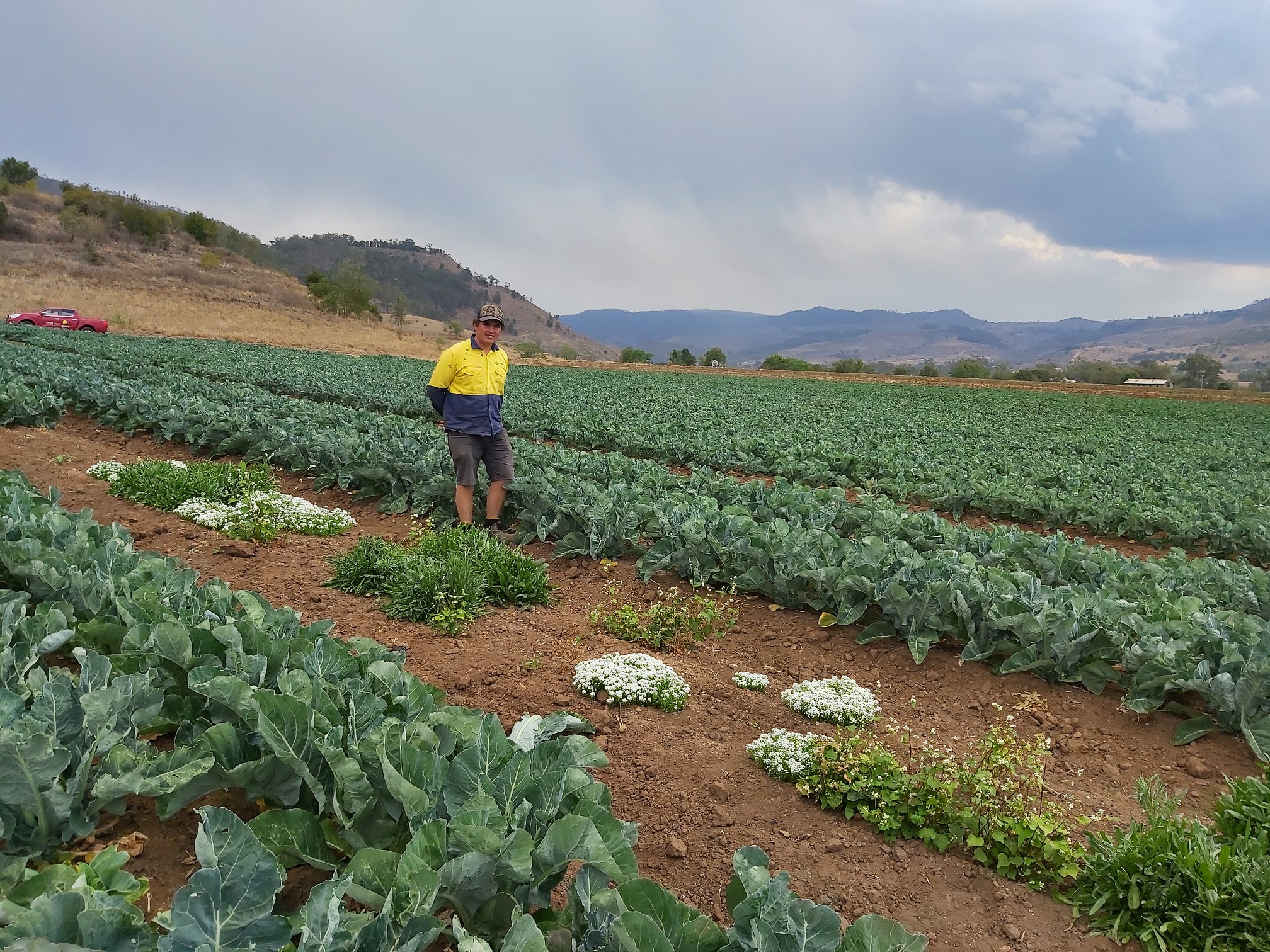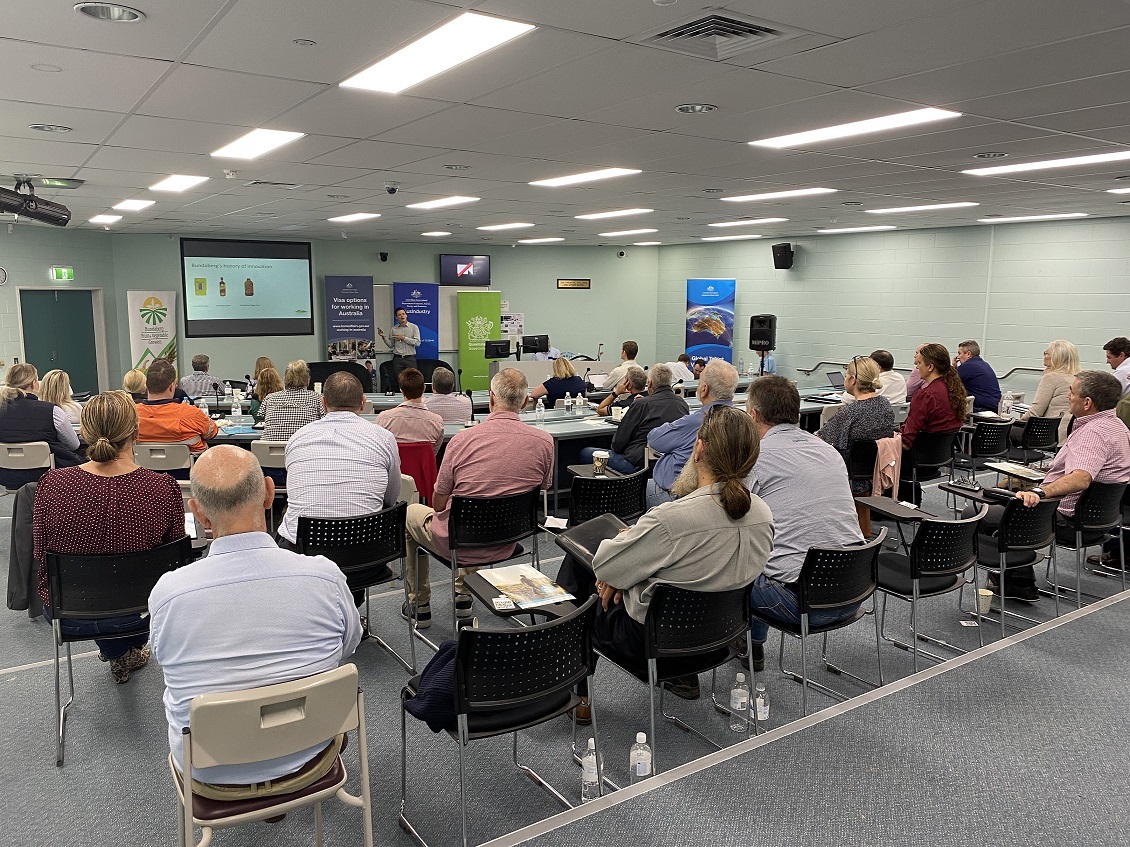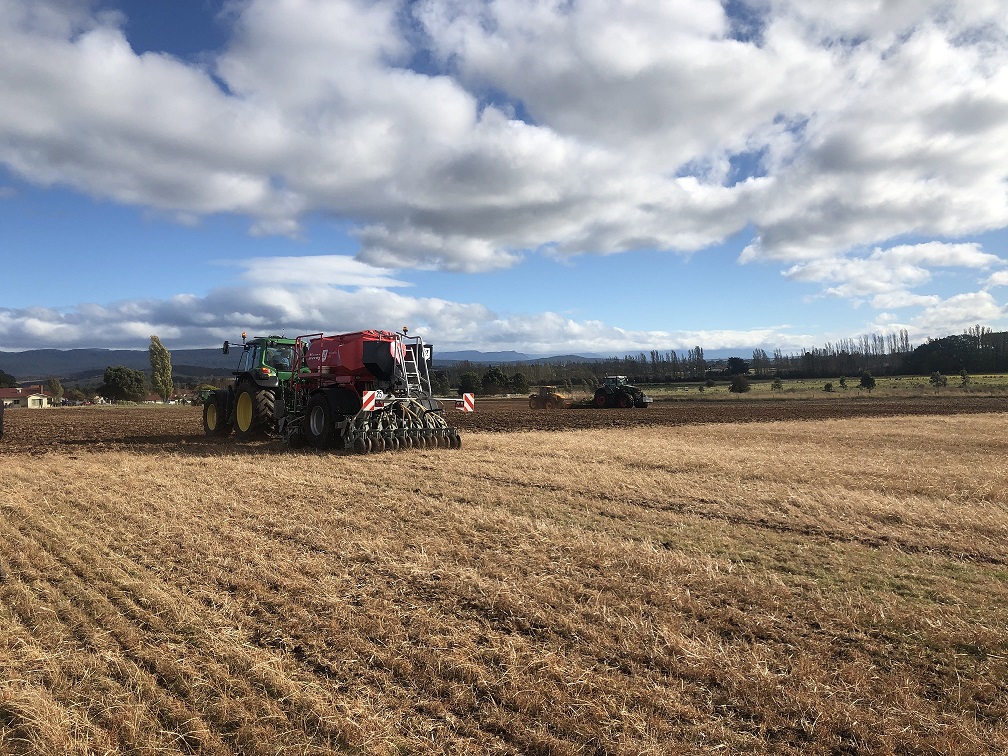
Addressing resistance management for diamondback moth
20 May 2021
Tackling the big issues facing growers across Wide Bay-Burnett
20 May 2021In this column, VegNET Regional Development Officer Ossie Lang discusses the latest events that have taken place in the Tasmanian vegetable industry. These events focused on pests and diseases along with the importance of biosecurity and managing incursions. Meanwhile, the Tasmanian Agricultural Productivity Group hosted its annual expo showcasing the latest in ag-tech.
Summer is a busy period for growers in Tasmania, so during autumn (towards the end of the harvest season) we have been getting out and about, conducting farm visits and various events.
The 2020/21 growing season was a bit of a mixed bag, with cooler conditions earlier in summer slowing the maturity in some crops. However, a warmer finish meant that harvest progressed well. Like other areas, Tasmanian growers have lost crops due to labour shortages. We are continuing to encourage growers to report these through to the National Lost Crop Register to ensure this information can be used in future discussions at both state and federal level.
Pest focus
We were lucky to have AUSVEG Biosecurity Coordinator Callum Fletcher visit the state in February 2021, where he met with growers and advisors to speak about current mainland pest incursions and the risks that they pose to the Tasmanian vegetable industry.
Callum presented detailed information about fall armyworm, serpentine leaf miner and tomato-potato psyllid. Hearing first-hand about the impact these pests can have from someone who has visited impacted growing regions drove home the seriousness of these pest threats. His practical information on the biology of these pests, and what to look for when monitoring, was invaluable. We also had a short presentation from Biosecurity Tasmania about the new General Biosecurity Duty.
In early February 2021, I participated in Biosecurity Tasmania and Plant Health Australia’s Industry Liaison Officer training, along with representatives from a number of Tasmanian horticultural industries. Here, we gained further insight on how an incursion is managed.
This training session also provided an important dialogue point for industry to work closely with Biosecurity Tasmania to ensure industry needs are represented when an incursion response is in progress. The industry representation from this training will also be a key point of contact for Biosecurity Tasmania at other times, and will be an important element of ensuring open and clear communication between Biosecurity Tasmania and industry.
Latest innovation on-show
The Tasmanian Agricultural Productivity Group hosted its annual expo at the Hagley Farm School on 14 April. Renamed the ‘Ag Innovation Expo’, the day was an important chance for growers and industry to see what technology was on the horizon, and how all can move towards implementing this technology on-farm.
Soil health was an underlying theme of the expo, with many of the technologies and techniques on display focusing on crop improvement. While there was a huge range of things to see on the day, I want to highlight a couple of key displays.
Firstly, the cover crop demonstration plot. This plot was a simple demonstration of available cover crops and mixers. It also highlighted the diverse benefits that can be achieved from cover cropping.
Secondly knowing what you are seeking to achieve from the cover crop is a key point in determining the cover crop selection, and ultimately the success of cover-cropping in your enterprise. The autumn 2021 edition of Vegetables Australia published a profile about this demonstration plot and some excellent cover cropping resources.
The other highlight was the Novag T-force drill. This is an inverted T drill for direct drilling in a range of situations. This is the drill currently being used by Nick Eyles, who was featured in the summer 2020/21 edition of Vegetables Australia. Direct drilling peas has not only improved soil health on the Eyles’ property, but also reduced herbicide requirements. The cost savings from the one pass drill plus reduced chemical costs have stacked up to be an equivalent of an additional two tons per hectare in additional yield.
Find out more
Please contact Ossie Lang on ossiel@rmcg.com.au or 0430 380 414.
Follow us on social media: Facebook: @VegNET.Tas and Twitter: @VegNET_Tas.
VegNET – Tasmania is a strategic levy investment under the Hort Innovation Vegetable Fund.
This project has been funded by Hort Innovation using the vegetable research and development levy and contributions from the Australian Government.
Project Number: VG19014
Cover image: The Novag T-force direct drill in action at the Ag Innovation Expo.

